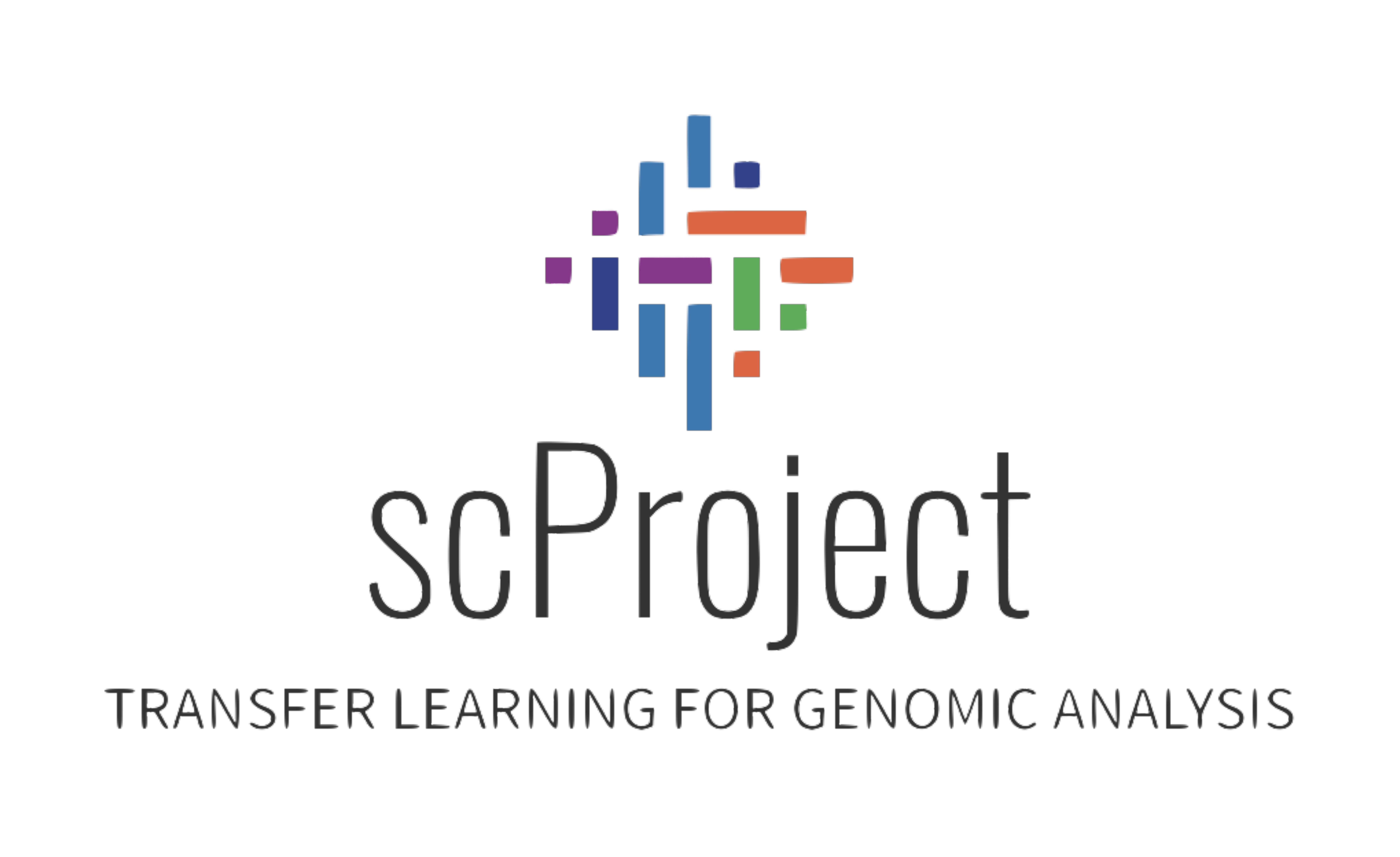Transfer learning for gene expression signatures in Python.
scProject is a software package that allows biologists to use transfer learning to understand the usage of previously discovered features in genomic datasets. Tools like NNMF allow biologists to find a set of vectors that linearly combine to approximately reconstruct a dataset. These features can have biological meaning as a pathway, cell type, gene program, cell feature, etc.
Built on top of ProjectR, scProject leverages scikit-learn’s and scipy’s regression tools to effectively perform a change of basis with the new basis being the features discovered from NNMF or another previous analysis tool. For example, the values in the first column of the pattern matrix are the coefficients of the features to approximate the first sample in the dataset. This analysis allows the user to see the usage of features from a previously examined dataset and see if those same features are utilized in a new dataset. Using umap-learn to decrease the dimensionality of the regressed pattern matrix allows the user to visualize the pattern matrix in intuitive and informative ways.
scProject package can be installed by the following code:
pip install scProjectIt is recommended to install the package and run the code in a virtual environment (venv). Use the code below to create and activate venv:
python -m venv env
source env/bin/activateI'm getting NumbaDeprecationWarning while importing scProject in Python. What should I do?
NumbaDeprecationWarning: The 'nopython' keyword argument was not supplied to the 'numba.jit'
decorator. The implicit default value for this argument is currently False, but it will be changed to True in
Numba 0.59.0. See https://numba.readthedocs.io/en/stable/reference/deprecation.html#deprecation-of-
object-mode-fall-back-behaviour-when-using-jit for details.
@numba.jit()The following error is coming from umap package, not scProject. Please ignore this warning message.
For more instructions and guidelines, read the documentation.
If you would like to leave feedback, please contact cshin12@jhu.edu and gsteinobrien@jhmi.edu.
Copyright © 2022-2024 Goff Lab, Stein-O'Brien Lab. All rights reserved.




